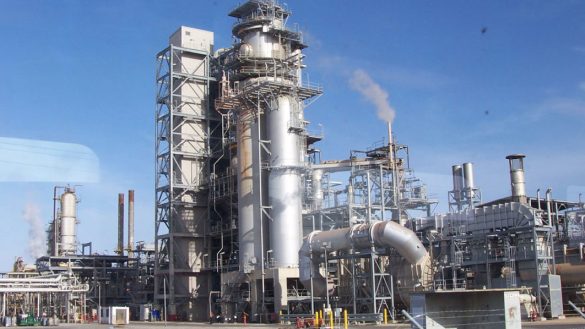In a striking revelation from The Guardian’s Kingsley Jeremiah, it appears that Nigeria’s quest for revamping its petroleum refineries and reshaping the downstream oil sector is increasingly entangled in a web of political maneuvering. This complex situation, spotlighted in Abuja on January 7, 2024, paints a challenging picture for the nation’s oil and gas industry under President Bola Ahmed Tinubu’s administration and the Nigerian National Petroleum Company Limited (NNPCL).
Central to the ongoing debate is the fate of the Port Harcourt refinery. Despite earlier promises, it is now unlikely that this facility will process Premium Motor Spirit (PMS), commonly known as petrol, before March 2024. As Nigeria continues to import petrol this year, questions arise about the Federal Government’s strategy and the true state of the refinery’s overhaul.
The Guardian’s investigation highlights concerns about the NNPCL succumbing to political pressures, specifically from President Tinubu’s administration. The completion deadline of December, set for the repairs of the refinery, was met with skepticism from industry stakeholders. They fear that the current approach, driven more by political agendas than technical and business realities, might lead to further delays and inefficiencies.
The Port Harcourt refinery, comprising a Crude Oil Distillation Unit (CDU) and a Catalytic Reforming Unit (CRU), is pivotal for Nigeria’s petrol supply. However, its full operational capacity remains uncertain, with only the CDU reportedly ready as of early December. Stakeholders are concerned that this piecemeal approach may not yield the expected outcomes and could potentially waste valuable crude resources.
NNPCL’s decision to commission a partially completed project has raised eyebrows, prompting experts to question the rationale behind such a move. With only two operational units – the CDU and CRU – the refinery’s impact on Nigeria’s PMS demand is yet to be ascertained. The concerns extend beyond the technical aspects to the broader implications of rushing a project that has missed several deadlines.
This situation is further complicated by the delayed start of the Dangote Refinery, initially hurried to commission for former President Muhammadu Buhari’s political gains. The ongoing saga reflects the deeper issue of political expediency overriding economic efficiency in Nigeria’s oil sector.
Energy experts and stakeholders, including renowned energy lawyer Prof. Wunmi Iledare, are calling for a shift in approach. They argue for a focus on value addition and growth in line with the Petroleum Industry Act of 2021, rather than clinging to traditional political motivations.
The challenges facing the Port Harcourt refinery are symptomatic of a larger dilemma within the Nigerian petroleum sector. The country, despite being a major oil producer, relies heavily on the importation of petroleum products. This paradox is rooted in years of government control and political interference in the downstream sector, which has hindered the development of local refining capacity.
The issuance of numerous refinery licenses over the years, totaling a potential refining capacity of over 2.3 million barrels per day, has not translated into actual production. Private investors have been deterred by regulated fuel prices and an unfavorable investment climate, leading to a stark gap between potential and realized refining capacity.
The situation calls for a reevaluation of Nigeria’s approach to its oil and gas sector. Experts like Dr. Diran Fawibe and Prof. Segun Ajibola advocate for a professional, transparent, and accountable management of the refineries. They suggest concessioning the facilities to competent operators under well-negotiated terms to maximize their economic contributions.
As Nigeria grapples with these complex issues, the need for a balanced approach that respects the laws of the land and acknowledges petroleum as an economic good becomes increasingly evident. The path forward requires a departure from past practices, embracing professionalism and efficiency to revive Nigeria’s refining capabilities and bolster its economy.



